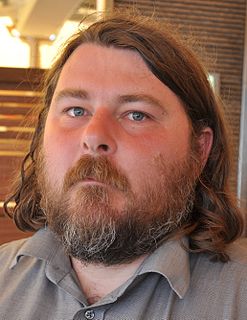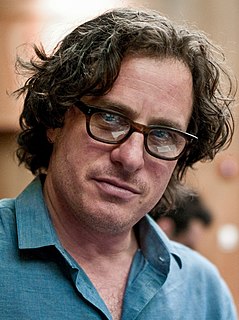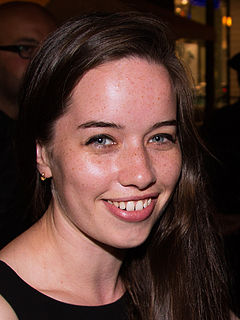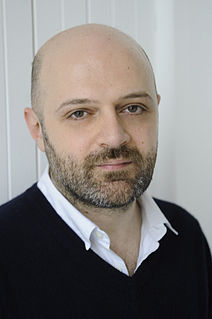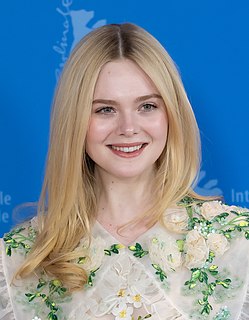A Quote by Federico Fellini
Even if I set out to make a film about a fillet of sole, it would be about me.
Related Quotes
I don't usually see what I've done. I don't often watch the film or watch the show. It's really about that experience on-set and within the scene. Because later, when the film comes out or the show comes out it's the editor's realm or the director's realm. But that moment on set, that's that electricity between me and another actor, and that's really what excites me.
I thought of the scene while writing scenes with Rebecca [Hall] and wrote it like an opening montage of showing where someone works. If you see a film about a car mechanic, you'd show the place they work and what they do. So, that's what I set out to do with Rebecca's character. I thought it probably wouldn't even make it into film but I ended up liking it.
When I make a film, I never stop uncovering mysteries, making discoveries. When I'm writing, filming, editing, even doing promotional work, I discover new things about the film, about myself, and about others. That is what I'm subconsciously looking for when shooting a film: to glimpse the enigmas of life, even if I don't resolve them, but at least to uncover them. Cinema is curiosity in the most intense meaning of the word.
I think a big part of my job is to make an atmosphere on set and have an attitude that it's about experimentation, and you can't do anything wrong. It's not about judgment, it's not about me kicking over a chair and storming onto set and acting stuff out and telling people to copy what I do. That is a style of directing some people have, but I don't understand it.
Cinematography was incredibly foreign to me, so I read as much as I could about it. Once I figured out that it was just photography with a set shutter speed, I got some slide film and I just went about storyboarding the script and taking snapshots. I took a ton of time doing it just to make sure I knew exactly what I was doing. By the end of it I knew what the film was going to look like - my exposure and the composition and everything. I wasn't scared of cinematography anymore.
I wanted to be a car mechanic and I wanted to race cars and the idea of trying to make something out of my life wasn't really a priority. But the accident allowed me to apply myself at school. I got great grades. Eventually I got very excited about anthropology and about social sciences and psychology, and I was able to push my photography even further and eventually discovered film and film schools.
The second you become an actress, people take the licence to make many assumptions about you. You're in trouble if you interact with a director/actor. You're in even more trouble if you don't. When I started out, a single YouTube comment would make me sad for days, and I'd wonder how people could say such nasty things about me.
I think that's true of all cinema, that's why cinema is the great humanistic art form. Whatever the film is, it doesn't matter what the film is about, or even whether it's a narrative or figurative film at all, it's an invitation to step into somebody else's shoes. Even if it's the filmmaker's shoes filming a landscape, you go into somebody else's shoes and you look out of their lens, you look out of their eyes and their imagination. That's what going to the pictures is all about.





